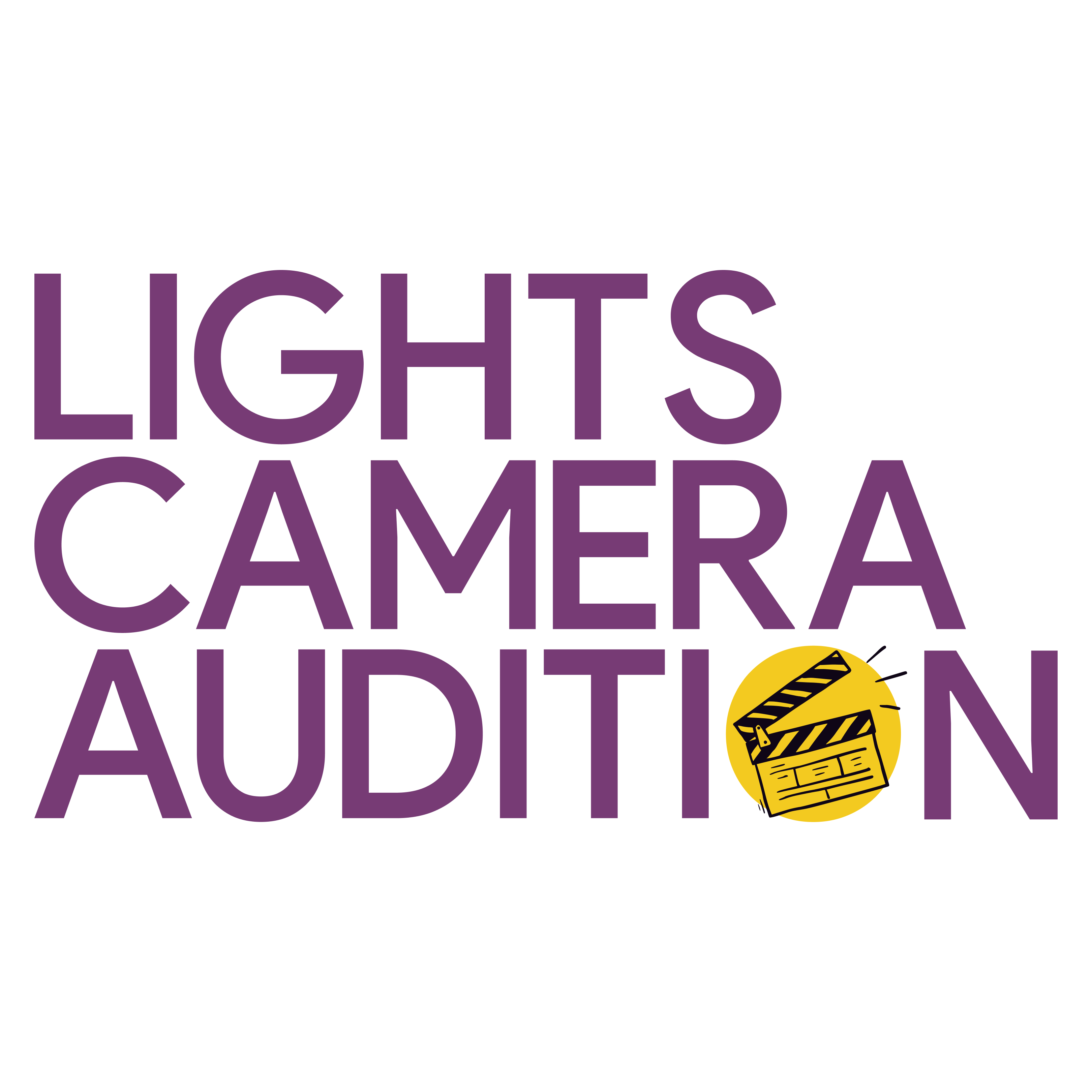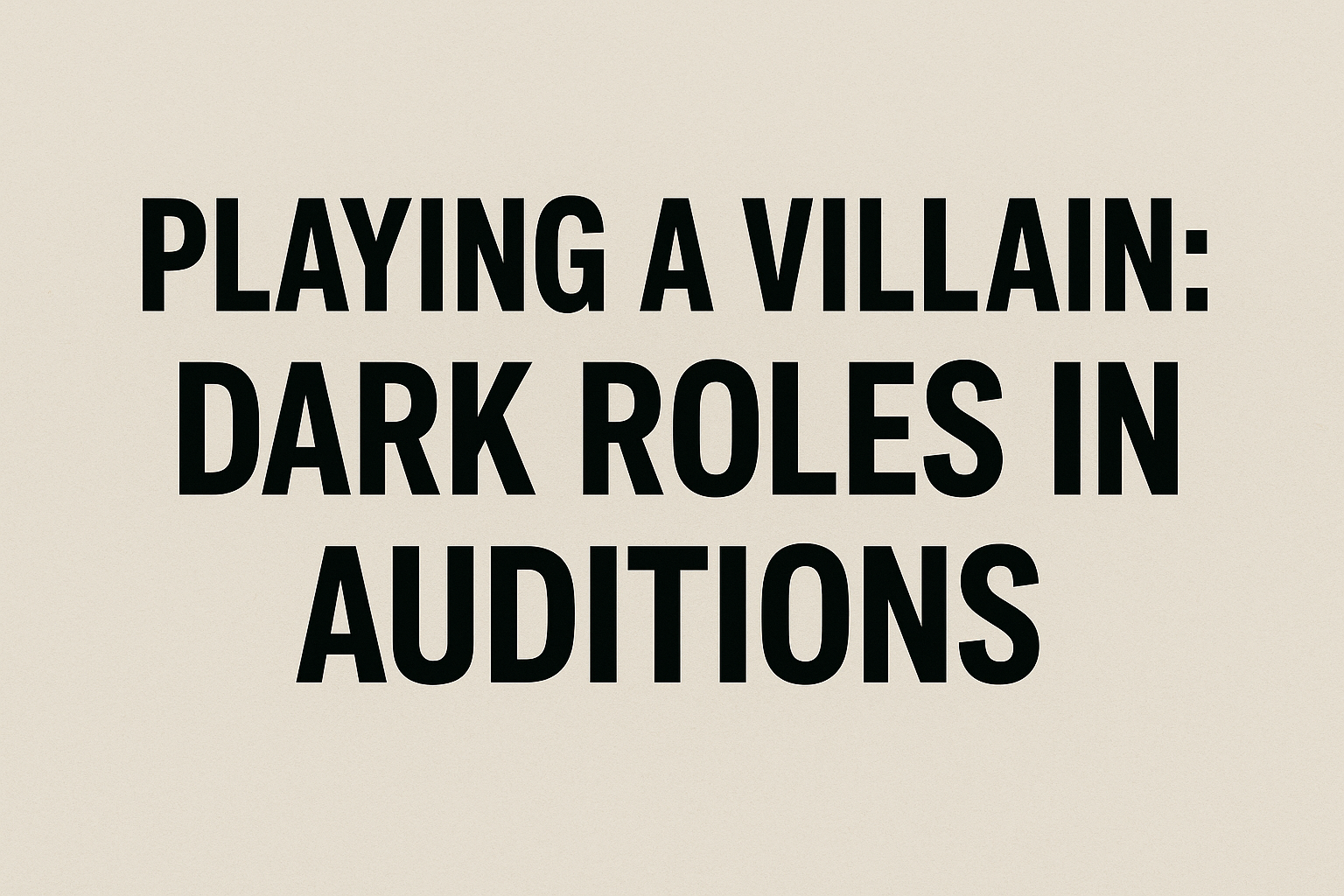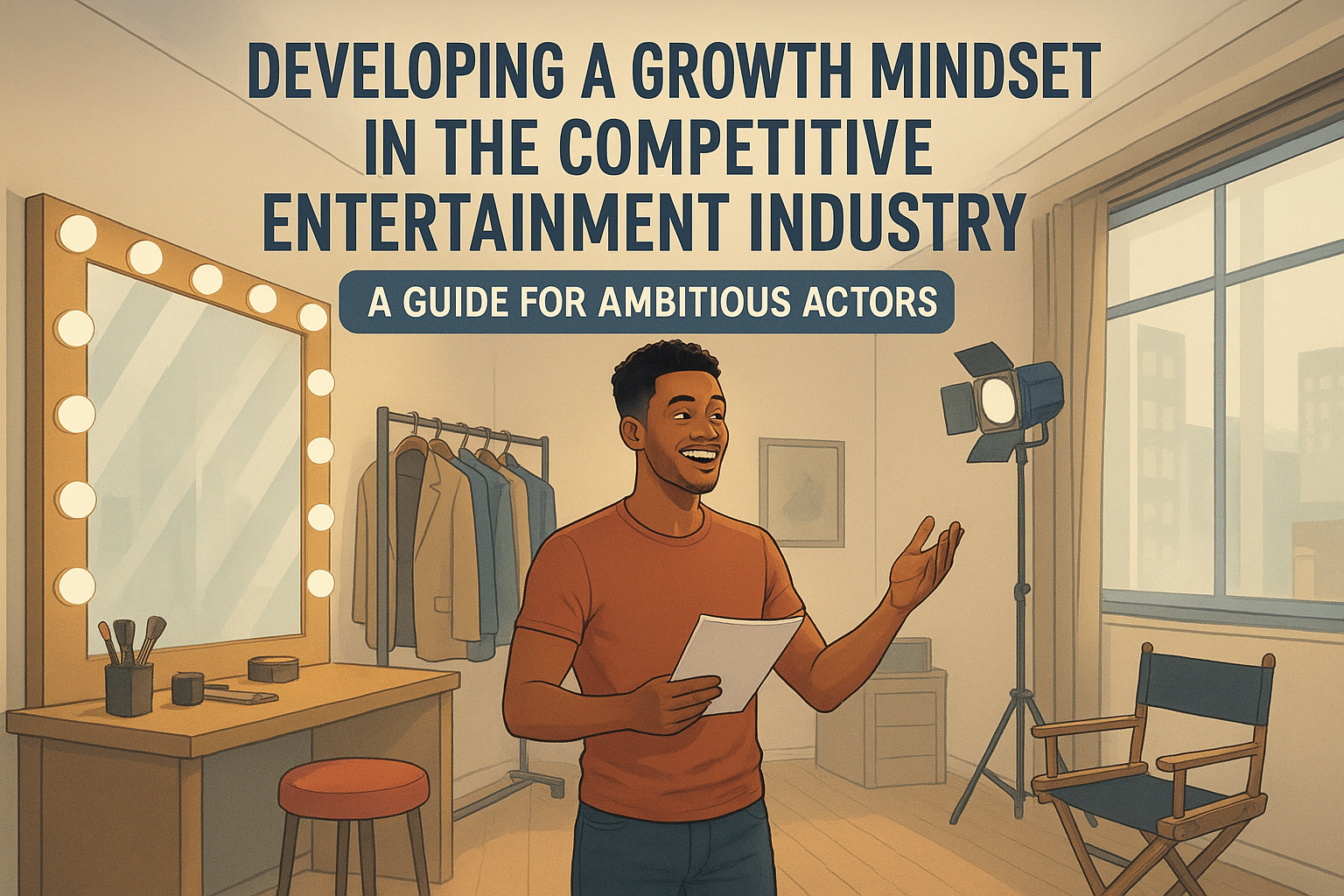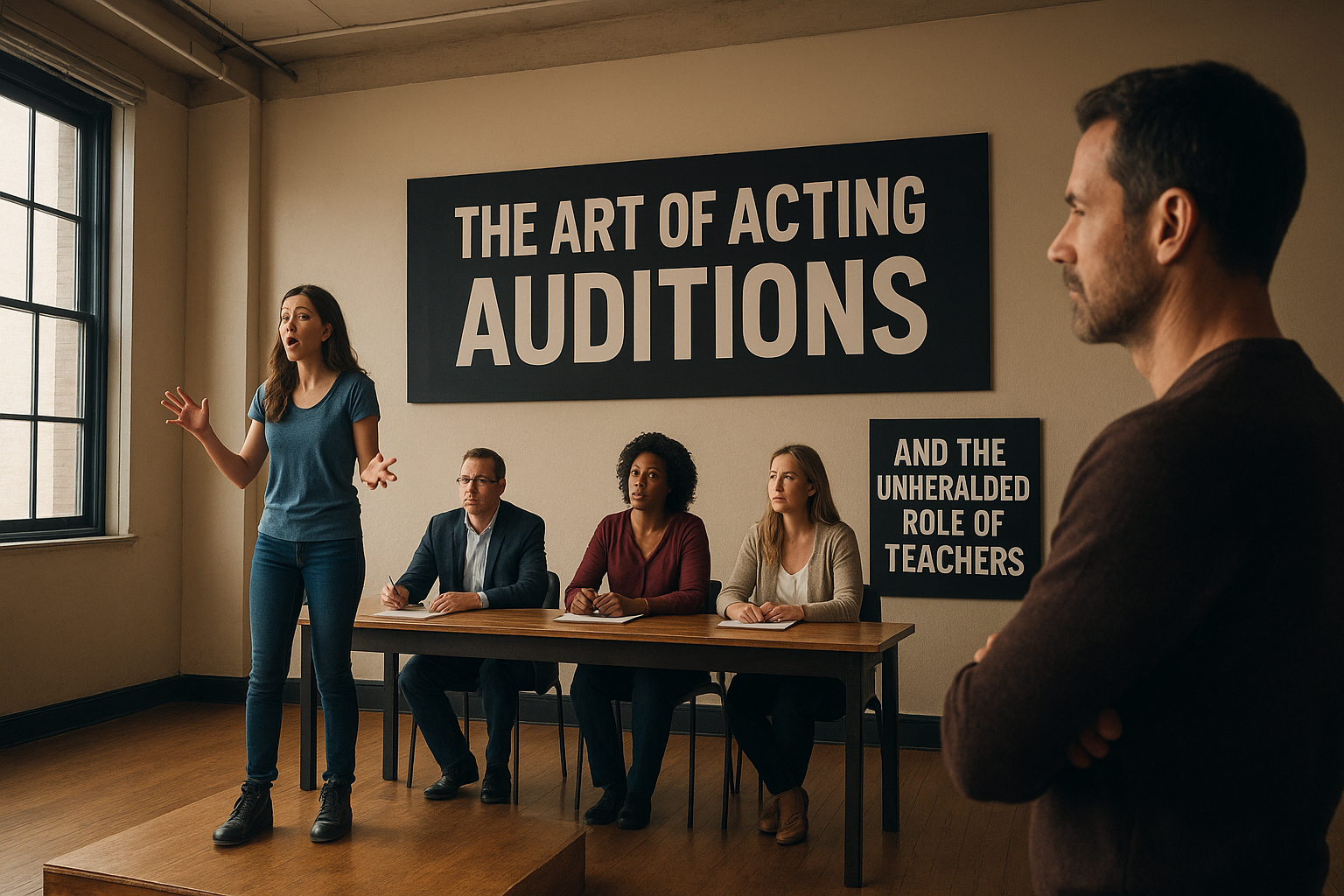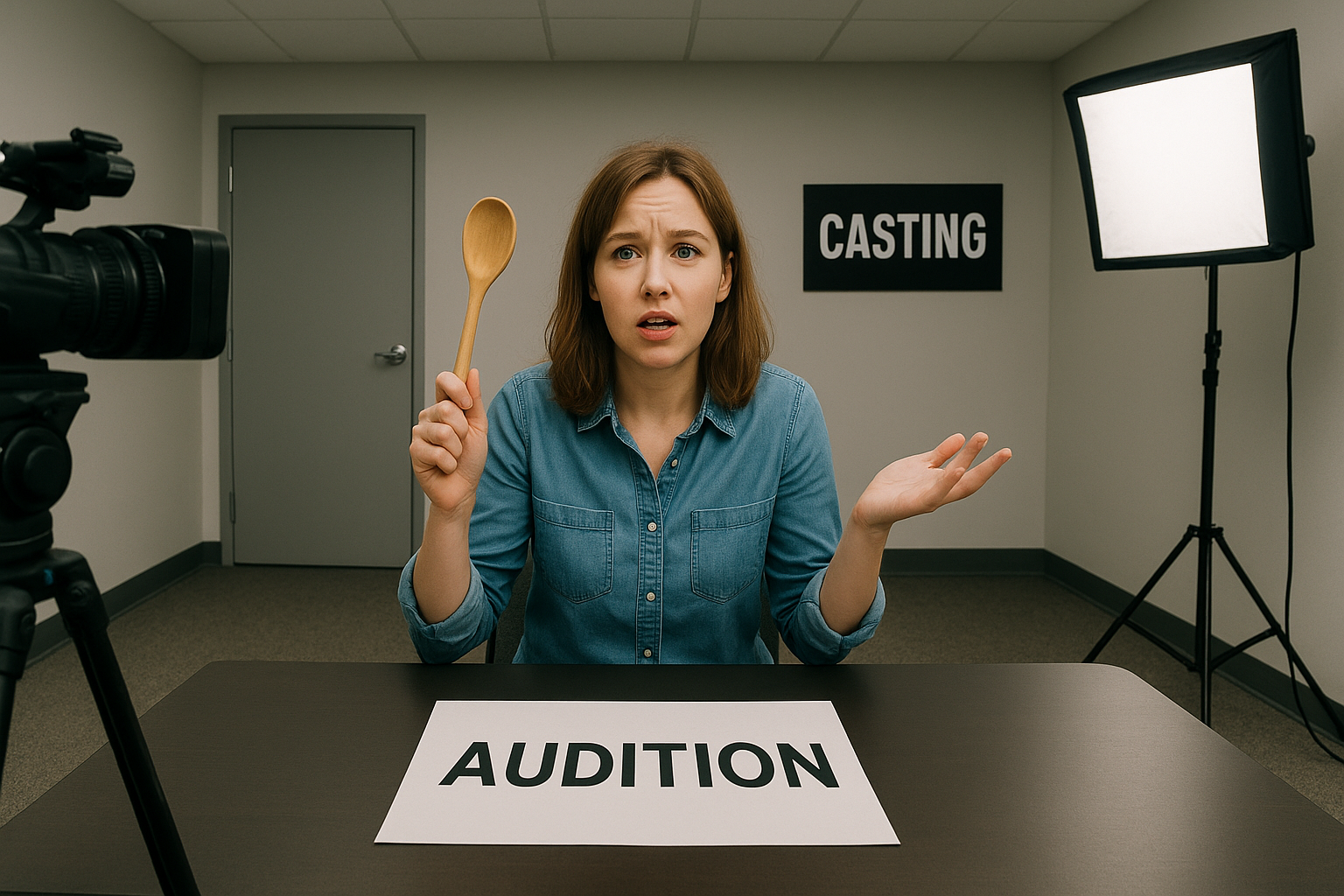
Film or TV audition personalities can be quite intense. With such little time to leave an impression, actors find themselves pondering: Should I use props during the audition? Will it make me memorable, or will I be distracting?
This is a usual argument in the acting community, and the response isn't as clear-cut as a yes or no. It all relies on context, the tone of the scene, and the way the prop is utilized. In this post, we list the advantages and disadvantages of prop use in auditions, and when (and whether) they can really benefit you.
What Do Casting Directors Really Want?
Casting directors want actors who can become the character, say the lines naturally, and feel the emotion—even with little setup. They don't want a full performance with costume, makeup, and all that. Most auditions, including first-rounds or self-tapes, are about you. Not the things you bring with you.
But that doesn't exclude props completely.
When Props Can Be Effective
Although prop people don't anticipate (or desire) complicated props, an occasional simple, well-selected object can be useful in supporting your performance and grounding the scene. These are the times when they'll work:
1. When the Prop Feels Natural
A phone, a pen, a cup—something small and real that keeps you "in character" might do. If the scene is a phone call, holding a phone (or fake one) could make your delivery more convincing.
2. If It Facilitates the Action
For instance, in case the script mentions writing a letter, drinking tea, or preparing a suitcase, possessing a pen, a mug, or a knapsack might make it easier to carry out the action.
3. For Self-Tapes, To Set Environment
In self-tapes, you’re responsible for creating the scene’s world. A subtle use of props can help suggest the setting without distracting from your performance. For example, holding a baby blanket in a maternal scene might help trigger emotion.
4. In Comedy or Improv-Based Auditions
In certain comedic or improv-heavy auditions, props can add to the humor or storytelling—if used sparingly and cleverly.
When Props Hurt More Than Help
Although it may be tempting to demonstrate your creativity, excessive use of props can harm your audition. Here's why:
1. They Can Be Distracting
Casting wants to pay attention to your performance, your eyes, and your interaction with the material. Thrashing around with props, paying too much attention to manipulating them, or using something oversized and gaudy can divert attention away from what they want most—you.
2. They Can Interrupt Your Flow
If you're overthinking "what to do" with a prop, you may end up losing sense of your emotions and delivery. Props must never compromise your relationship with the character.
3. They Might Seem Unprofessional
During a live audition, bringing out a bunch of props or anything out of the ordinary (weapons, food, costume) can look unprepared or gimmicky. It indicates you are trying too hard or don't know about audition etiquette.
4. You May Depend on Them Emotionally
Certain actors will use props as a "crutch" to get emotion or action, rather than doing the work within. Casting directors see this immediately, and it may bite you back.
What the Pros Say
Most acting coaches and casting directors would agree on one essential statement: "Use your imagination first."
You don't need an actual sword in order to demonstrate you're a warrior. You don't need a cigarette in order to play like a rebel. It's more significant that your intention, stakes, and inner life are established than if you're actually holding the specific thing called for in the script.
But they also admit that if a tiny prop makes you feel more in touch with the scene—and you can carry it naturally—it's alright to use it. Just be careful not to make it a crutch or distraction.
Tips on Using Props in Auditions Wisely
Keep it Simple: Use tiny, ordinary things such as a phone, pen, notebook, or glass of water. Refrain from large, flashy, or peculiar props.
Don't Force It: Don't include it if it doesn't feel natural to the scene. Don't have a prop simply to "be noticed."
Practice With It: If you're taping a self-tape and using a prop, practice so that your movements are natural and smooth.
Be Prepared to Ditch It: If a casting director instructs you to resubmit the scene without the prop, graciously do so and professionally.
Stay Focused on the Story: Let the emotional truth and your character's goal guide the way—not what's in your hand.
Yes or No?
Yes—but only if it helps.
Use props if they really serve your performance and feel natural to the scene. But never make them the star. You are the center of your audition—not what you hold.
In uncertainty, rely on your craft, your emotional connection, and your preparation. That's what casting directors really want.
When it comes to acting, playing a villain is considered a challenge and a golden chance. Villains are multilayered, multi-dimensional, and probably the most remembered characters in a narrative. Be it old Bollywood films such as Gabbar Singh from Sholay or OTT villains such as Guruji from Sacred Games, dark roles determine an actor's fate. But auditioning for a villain is an altogether different. It needs a firm grasp of psychology, body language, and emotional regulation. If you're a newbie or a seasoned actor wanting to master your craft, this blog will walk you through all that you need to know on how to audition for villainous roles.
In the high-stakes, emotionally demanding world of acting, rejection is frequent, uncertainty is constant, and comparison can feel unavoidable. The entertainment industry is as competitive as it gets—and in such an environment, your mindset can make or break your journey. While talent, networking, and luck all play their part, there's one internal tool that can drastically shift your trajectory: a growth mindset.
There is a moment every actor fears: the casting director places a script in your hands you've never laid eyes on before and says, "Take a minute, and when you're ready, we'll begin. Welcome to the cold read — perhaps the most unpredictable, yet vital portion of an actor's career. Whether you're auditioning for theater, television, or voiceover, cold reading is the skill that can break or make your chance at a role. But the good news is this: like every other craft, it can be practiced, honed, and eventually mastered. In this post, we will analyze what cold reading actually is, why it's important, and how you can transform a cold script into a warm, breathing performance.
In showbiz, auditions for acting are the initial and most often essential step toward a dream. For aspiring actors, an audition is not simply reading lines or acting in front of a casting director—it's a moment of exposure, innovation, and bravery. But behind every assured performance are years of education, instruction, and mentoring. And on Teachers' Day, it is only appropriate that we acknowledge the unseen architects of every actor's journey—their teachers.
Lights Camera Audition!
Don't miss out on the latest updates, audition calls, and exclusive tips to elevate your talent. Subscribe to our newsletter and stay inspired on your journey to success!
